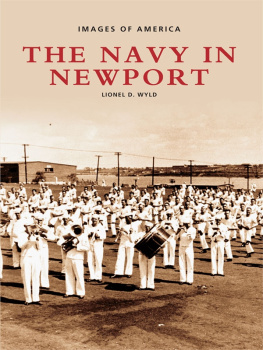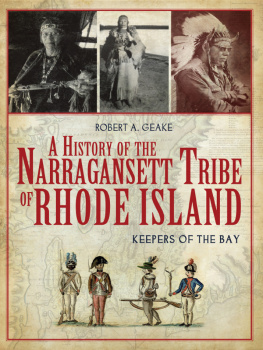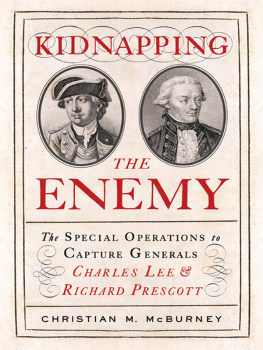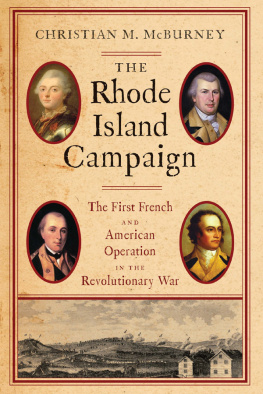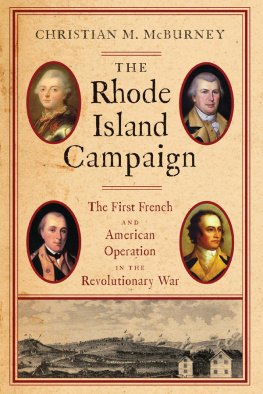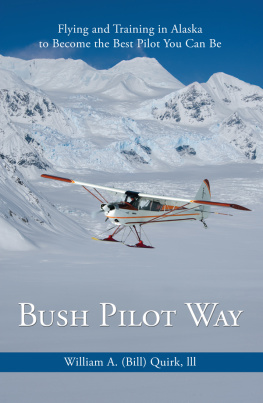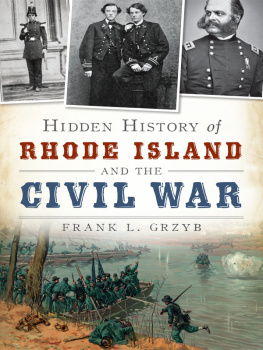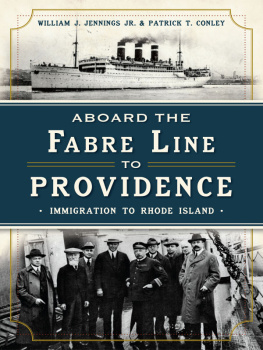Published by The History Press
Charleston, SC
www.historypress.com
Copyright 2019 by Christian McBurney, Norman Desmarais and Varoujan Karentz
All rights reserved
Front cover: Recruits training to use Oerlikon-Gazda antiaircraft guns on PT boats in Narragansett Bay. Naval History and Heritage Command; A motorboat heads out to the USS Augusta, the flagship of the Atlantic Fleet headquarters based in Newport, on May 2, 1941. Naval War College Museum; Cover page of a journal reporting crashes of aircraft taking off and landing at Naval Air Station Quonset Point from November 25, 1943, to November 4, 1944. Providence College Library; Aerial view of Fort Varnum, now used by the Rhode Island National Guard. It has the states best collection of World War II fire control and other military structures. Rhode Island Army National Guard.
First published 2019
e-book edition 2019
ISBN 978.1.43966.832.0
Library of Congress Control Number: 2019945072
print edition ISBN 978.1.46714.186.4
Notice: The information in this book is true and complete to the best of our knowledge. It is offered without guarantee on the part of the authors or The History Press. The authors and The History Press disclaim all liability in connection with the use of this book.
All rights reserved. No part of this book may be reproduced or transmitted in any form whatsoever without prior written permission from the publisher except in the case of brief quotations embodied in critical articles and reviews.
Preface
By Christian McBurney and Norman Desmarais
The story of Rhode Islands extraordinary role in World War II is so big that it requires more than a single volume to tell.
As claimed in volume 1, World War II Rhode Island, Rhode Islands contribution to the war effort far exceeded its small size. Its greatest contribution was in training U.S. Navy officers and sailors. More than 500,000 recruits were trained at the Newport Naval Training Station; some 100,000 Seabees were trained at Davisville; more than 10,000 pilots and 1,000 Combat Information Officers received instruction at Quonset Point; and some 20,000 PT boat officers and sailors were trained at Melville. Most of these menand some womenmoved on to active theaters of war.
Rhode Island was also on the front lines. Aircraft from Quonset Point and destroyers from Newport patrolled Atlantic waters searching for German submarines. Admirals Ernest J. King and Royal E. Ingersoll, based in Newport, commanded the U.S. Navys Atlantic Fleet (see chapter 2 in this volume).
Rhode Islanders manufactured incredible amounts of military equipment and supplies, including producing torpedoes at the Naval Torpedo Station in Newport and designing and manufacturing the first Quonset huts at West Davisville. In this volume, a chapter discussing Woonsockets mills serves as a microcosm of the states manufacturing contribution.
Remarkably, one sitting and four future U.S. presidents visited or trained in Rhode Island during World War II. Chapters in this volume describe President Franklin D. Roosevelts 1940 visit to Newport, John F. Kennedys training as a PT boat commander at Melville and George H.W. Bushs training as a pilot at Charlestown (where he wrote an affecting love letter to his new fiance). Richard Nixons 1942 training at Quonset Point and Harry S. Trumans 1944 campaign visit to Providence and Pawtucket are also covered.
Four chapters deal with extraordinary innovations. At Spraycliff Observatory in Jamestown, radar installed on fighter aircraft was developed, and courageous pilots stationed at Charlestown and Westerly used the radar for night fighter training. At Davisville, Seabees perfected pontoons that became a key to the D-Day landings on Normandy beaches. One pontoon they developed was a floating airfield that fighter planes tested on Narragansett Bay. At Chopmist Hill in Scituate, perhaps the nations most successful listening spy station was established. In Woonsocket, fake rubber tanks were produced that fooled German armies. This volume also describes the Harbor Entrance Command Post at Jamestown and forts in Little Compton that helped to protect these and other facilities in the state.
There are personal stories told here too. A reporter from the Westerly Sun recalls how the newspaper became the first to announce the attack on Pearl Harbor. Marie Duggins narrates her uplifting experiences as a WAVE at Quonset Point. Elisabeth Sheldon befriends pilots training at Quonset Point but suffers tragedy later. Residents of the summer community of Quonochontaug fondly recall their childhood wartime memories. Edward Swain Hope breaks a racial barrier by becoming the first black man to train as a Seabee officer at Davisville. John Bradley agonizes, wondering if his spotting of German submarine U-853 could have avoided the sinking of a merchant marine vessel off Point Judith. Quonset Points commander, a war hero wounded commanding an aircraft carrier in the Pacific, is tragically killed in an airplane crash shortly after the war.
The final chapter identifies existing Rhode Island sites from World War II, many of which readers can visit today to deepen their appreciation of the states exceptional contribution to the war effort.
Small state, big history, indeed!
This map shows the U.S. Navy facilities and U.S Army defenses of Narragansett Bay during World War II. Not shown are (i) thirty-one mooring buoys in the East Passage for berthing warships, (ii) the Naval Auxiliary Air Facilities at Charlestown and Westerly and (iii) concrete lookouts and fire control buildings from Little Compton to Point Judith to Watch Hill and on Block Island. Map by Tracy Dungan.
Acknowledgements
Each of the authors contributes to the Rhode Island history blog The Online Review of Rhode Island History at www.smallstatebighistory.com.
We wish to thank the following for helping to make this book possible: Robert Doane of the Naval War College Museum at Newport; Anne Doyle, Tom Doyle, Peter Mogielnicki and Robert Petrone of the Quonochontaug Historical Society (Quonochontaug and George H.W. Bush chapters); Pam Lyons of the Charlestown Historical Society and Cody McMillian of the George Bush Presidential Library and Museum (George H.W. Bush chapter); Irene Blais of the Woonsocket Historical Society and Rick Finkelstein (Woonsockets mills chapter); Linsey Lee of the Marthas Vineyard Museum (Joseph Stiles and Hector Asselin interview transcripts); Nina Wright of the Westerly Public Library (Westerly Sun); Barbara Fallon (Robert Gentile and Benjamin York); Dianne Rugh and Rosemary Enright of the Jamestown Historical Society (Fort Burnside and Spraycliff chapters); and Professor J. David Rogers of the Missouri University of Science & Technology (pontoons chapter). Two chapters would not have been possible without the assistance of Marjorie Johnston (Elisabeth Sheldon chapter) and Linda McAuliffe (Marie Duggins chapter). Historians David Kohnen and John Hattendorf of the Naval War College Museum kindly responded to a few challenging inquiries.


